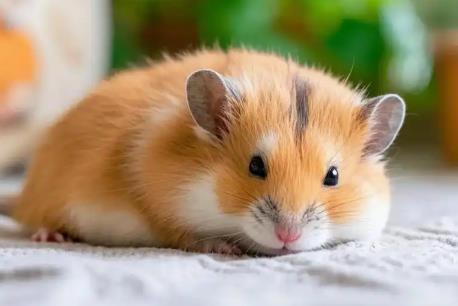Hamsters are classic nocturnal creatures. Their activity patterns, physical characteristics, and behavioral habits all reflect traits adapted for nighttime activity. Below is a detailed breakdown:

1. Activity Patterns
Nocturnal Activity: Hamsters are most active at night, a trait developed from long-term adaptation to their natural environment. In the wild, nighttime activity reduces the risk of being detected by predators and also helps them search for food and water sources.
Diurnal Rest: Contrary to their nighttime activity, hamsters usually rest in nests or hidden spots during the day. This helps them avoid high temperatures and potential threats.
2. Physical Characteristics
Visual Adaptation: Hamsters’ eyes are sensitive to light, and their night vision is relatively strong. This helps them move in dark environments. However, their vision is less clear during the day, which further makes them prefer nighttime activity.
Well-Developed Hearing and Smell: Beyond vision, hamsters have highly advanced hearing and smell. These senses play a crucial role in their nighttime activities, helping them detect changes in the surrounding environment, find food, and avoid dangers.
3. Behavioral Habits
Foraging Behavior: Hamsters go out to forage at night. They seek various seeds, fruits, and insects as food. This foraging behavior typically occurs at night to lower the risk of being preyed on by predators.
Social Behavior: Although hamsters may rest alone during the day, they also engage in certain social activities at night, such as grooming each other and playing. These social behaviors help strengthen bonds between hamsters and enhance group cohesion.
Exercise Habits: Hamsters enjoy exercising at night, such as running on wheels and climbing. These activities not only help them maintain physical health but also satisfy their curiosity and desire to explore.
4. Observations in Practical Care
During hamster care, many owners notice that hamsters are more active at night. They may run on wheels, explore their cages, or interact with companions. During the day, however, hamsters usually hide in their nests to rest or sleep.
